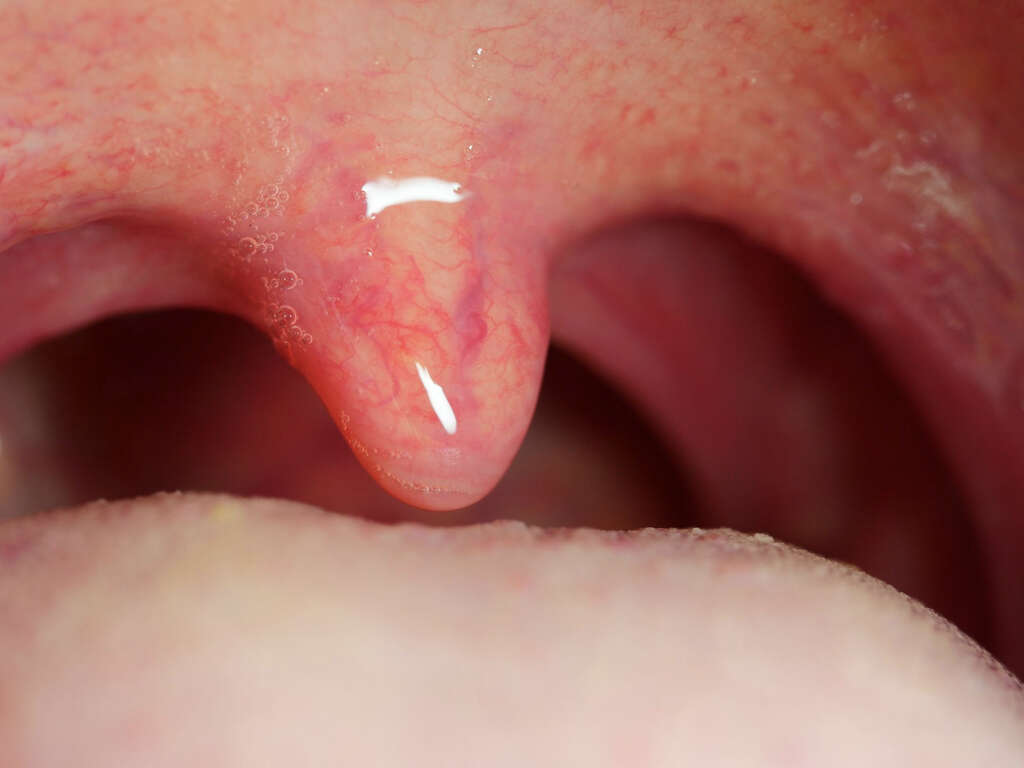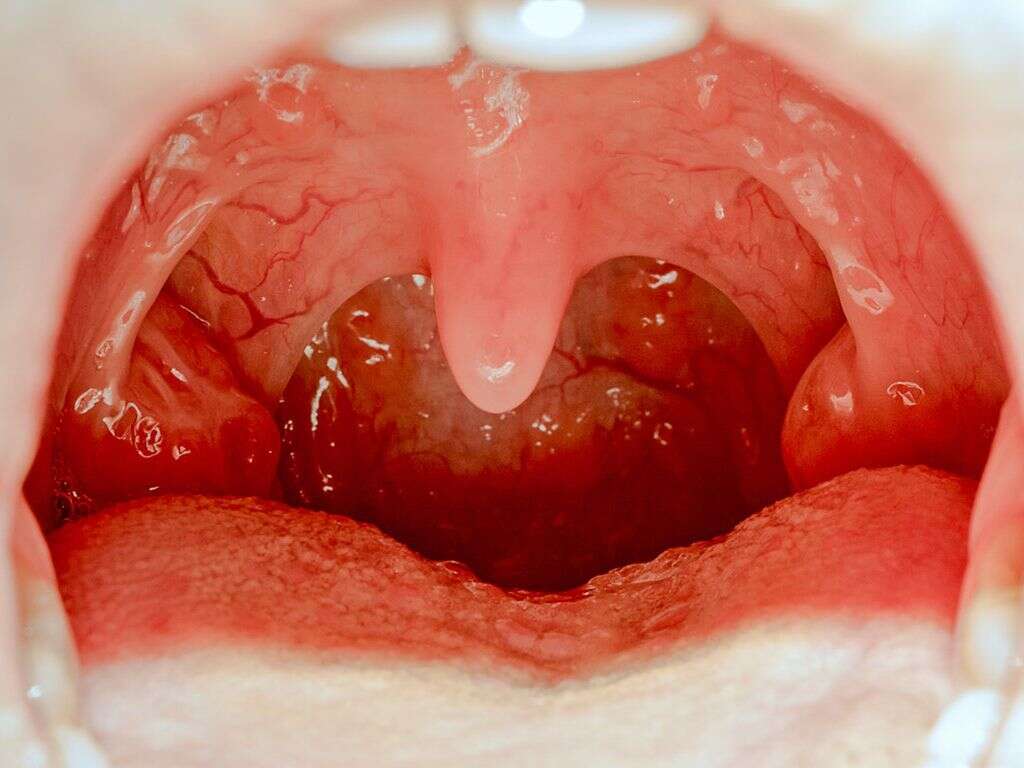Swollen Uvula Causes
10. Genetic Causes
Angioedema can also be hereditary. This means that a mutation in a specific gene is inherited from your parents. In this case, the affected gene is responsible for the production of a protein known as a C1 inhibitor (C1-INH). This protein is responsible for keeping in check certain immunological responses. However, if there are low levels of this substance in the body, the immune system can misfire and cause angioedema.
Episodes of hereditary angioedema (HAE) are usually random, but they can also be triggered by specific factors (i.e. medications, stress, infection). Manifestations of this condition include painless swelling of the skin, abdominal pain, and/or involvement of the upper respiratory tract. Hence, HAE can affect the tongue, throat (including the uvula), and/or larynx (voice-box), possibly even causing airway obstruction. Unfortunately, there is no definitive cure for this condition; but, management involves several treatment options for acute attacks and diverse preventive measures to decrease the frequency of episodes.
Advertisement












